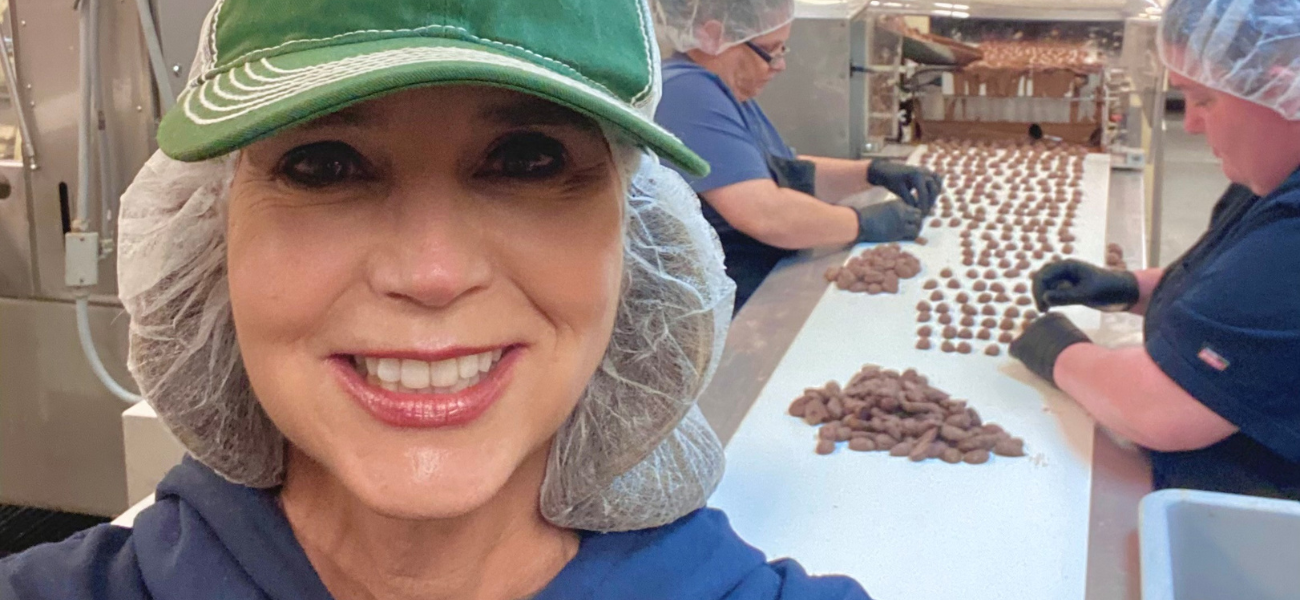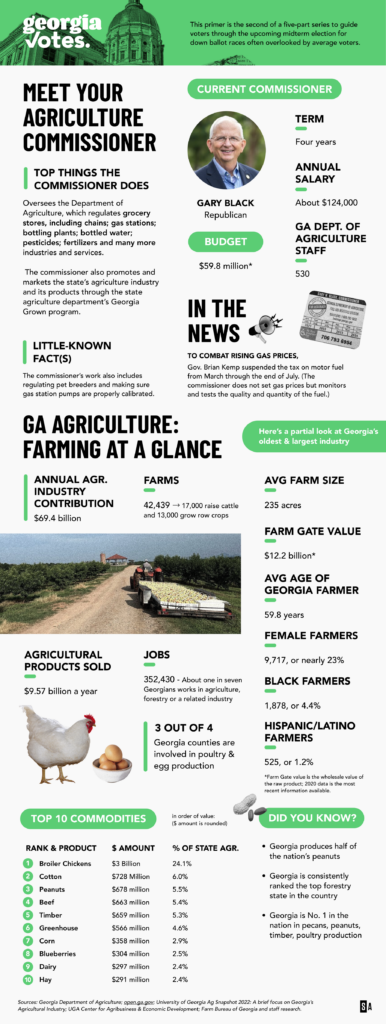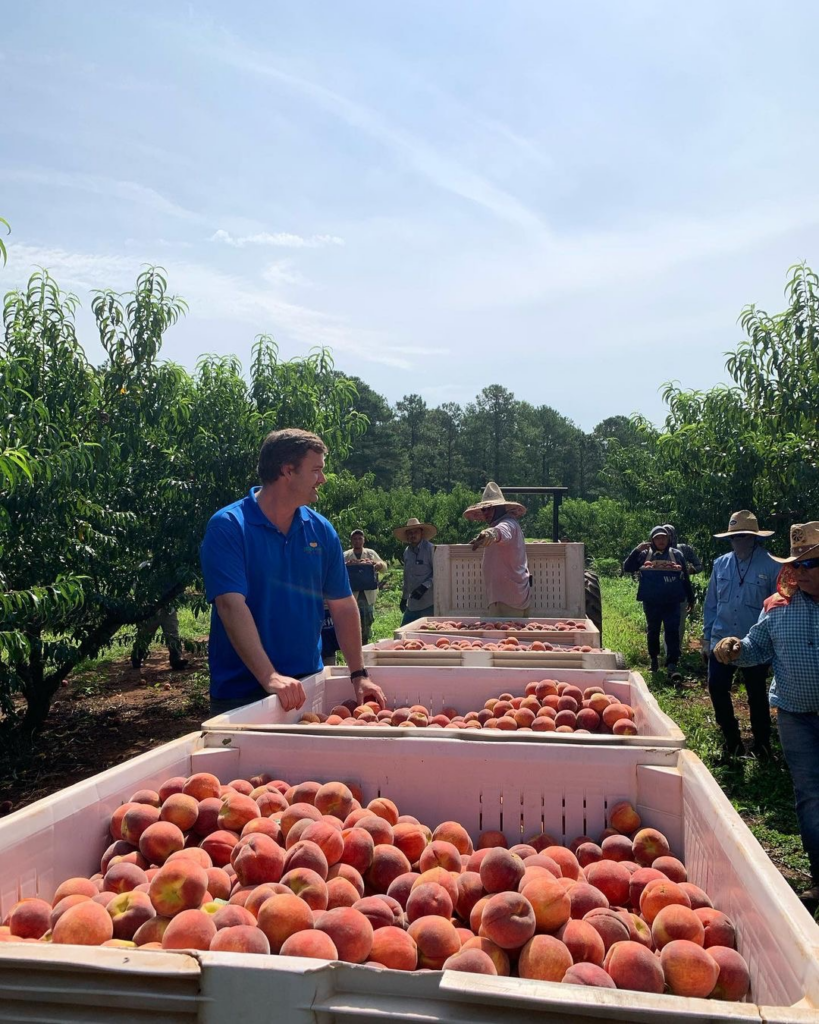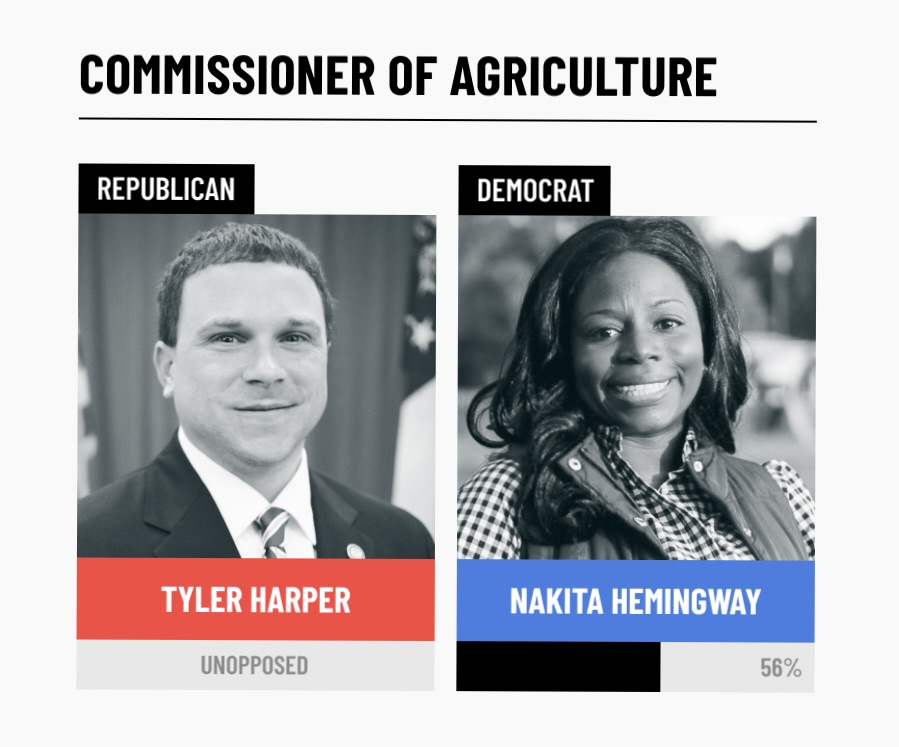Stay ahead of the curve as a political insider with deep policy analysis, daily briefings and policy-shaping tools.
Request a DemoDepartment of Agriculture: Where poultry, pie, pump and puppy meet

Candy Making & Enrober Line: Stuckey’s pecan processing / candy plant in Wrens, GA (Credit: Stuckey's Corp)
This primer is the second of a five-part series to guide voters through the upcoming midterm election for Georgia agriculture, labor, insurance and public service commissioners as well as the superintendent of schools – down ballot races often overlooked and unnoticed by average voters. This series examines how what happens in these offices impact you.

The Gist
The roast chicken and peach pie you’re serving for dinner tonight had to clear a few regulatory hurdles before getting to your dinner table. So did the gas pumps at your local convenience store and the breeder who sold you the cute eight-week-old Chihuahua.
In each case, the poultry, pie, pump and puppy all had to get the seal of approval from the agriculture commissioner before you could buy it or use it.
On November 8, voters will not only decide who becomes governor and who will represent them in Congress, they’ll also weigh in on down-ballot jobs, such as the agriculture commissioner, who oversees the state’s Department of Agriculture, which regulates and monitors everything from the quality of food to forests, fuel and livestock.
What’s Happening
Georgia’s agriculture commissioner touches every aspect of our daily lives.
“When you think about food, fiber, shelter, water, the agriculture commissioner and department of agriculture are involved,” Department of Agriculture spokesman Bo Warren said. “That doesn’t even get into companion animals such as dogs, cats and horses. It’s so vast.”
So vast, in fact, that most voters have no idea of the scope of the agriculture commissioner’s portfolio.
Faith Miller is vigilant about voting and understanding the various political races — even more so after recent national events like the Jan. 6, 2021 insurrection at the U.S. Capitol and the Supreme Court’s decision in June to overturn Roe v Wade. She carries the list of candidates she voted for in Georgia’s May primary in her purse.
But even the 58-year-old Stockbridge resident was surprised to learn about all of the wide-ranging responsibilities of the current agriculture commissioner, Gary Black. “I didn’t know about the [breeders],” said Miller. “I thought [the commissioner] was central to making sure our farmers got their needs taken care of because that’s a big industry.”

Why It Matters
Agriculture is big business in Georgia. It contributes nearly $70 billion to the state’s $1.1 trillion economy, according to The Center for Agribusiness & Economic Development at the University of Georgia.
One in seven Georgians works in agriculture, forestry or related industries. And Georgia produces half of the nation’s peanuts and most of its blueberries, pecans and of course peaches.
The agriculture commissioner oversees an annual budget of nearly $70 million and has regulatory power that far exceeds farms and grocery stores. There’s food and meat processing plants, state farmer’s markets, convenience stores, gas pumps, animal health and pet breeders, antifreeze, pesticides, seed quality, nursery and garden centers, potting soil and the state’s most famous crop: Vidalia onions.
“Agriculture is our single largest industry in our state. So it’s very, very important,” said state Representative Robert Dickey, Republican chairman of the 29-member House Agriculture Committee. Dickey’s family has been farming for generations in Crawford County and are well-known producers of peaches and other fruit.
“A lot of what [the agriculture commissioner’s] responsibility is is not just for farmers. It’s also for consumers,” said Dickey. “Consumers are very concerned about the quality and safety of our food supply — imported food as well as the food we ship cross country and across the globe.”
The farming segment of Georgia’s agriculture industry is among the most diversified in the country, Dickey said. “In Georgia, we’re growing apples in the north and citrus in the south and we’re No. 1 in peanuts and [chicken] broilers,” said Dickey. “Every commodity under the sun is grown in Georgia just about. It’s probably right there with California and Florida. Our diversity is not by accident.”

The state also is a leading contender in agricultural technology, helping growers improve efficiency, increase yields and cut costs. And the Agriculture Department’s Georgia Grown division has helped agribusinesses sell their products outside the state’s borders.
“[The program] connects growers, processors and retailers to products made in Georgia. That’s just been huge,” said Stephanie Stuckey, chief executive officer of Stuckey’s Corp., a family-owned pecan processor, whose Wrens-based company was able to sell its pecan and candy products to Taiwan because of Georgia Grown.
What’s Next?
While the governor’s race and U.S. senate race have garnered most of the attention in the upcoming midterm elections, little-known races such as the agriculture commissioner’s race have far more impact on your daily life.
On Nov. 8, voters will choose between Democratic candidate Nakita Hemingway, a farmer, realtor and mother of four from Dacula; and Republican candidate, state Sen. Tyler Harper, a seventh-generation farmer and a small business owner.
“These [down-ballot races] are very important positions that really affect every Georgian,” said Dickey. “We certainly need to take the time to get to know these candidates and vote down the ballot.”

Join the Conversation
What else do you want to know about the Department of Agriculture, voting or elections in Georgia? Share your thoughts/tips by emailing [email protected] or on Twitter @lvjoyner
Read State Affairs’ Georgia Votes 2022 series.
Part I: Public Service Commissioners: Keeping the Lights On
Part III: State School Superintendent: Educating our country’s future
Part IV: UPS AND DOWNS OF THE INSURANCE AND SAFETY FIRE COMMISSIONER
Part V: MIDTERM ELECTION OF LABOR COMMISSIONER KEY IN STATE’S POST-PANDEMIC RECOVERY
Header photo: Candy Making & Enrober Line: Stuckey’s pecan processing / candy plant in Wrens, GA (Credit: Stuckey’s Corp)
Professionals still face licensing delays amid state’s transition to online system
The Gist Georgia’s professionals and business owners are still struggling to obtain professional licenses in a timely manner. As the Secretary of State’s Office rolls out its new Georgia Online Application Licensing System to expedite the process, the efficiency of this new process is being put to the test. What’s Happening Thursday morning at the …
Controversy over AP African American Studies class grows
Rashad Brown has been teaching Advanced Placement African American Studies at Atlanta’s Maynard Jackson High School for three years. He’ll continue to do so — even though the state’s top education official removed it from the list of state-funded course offerings for the upcoming school year. While Brown prepares to start teaching his class on …
Students, teachers, lawmakers blast decision to end AP African American history classes
ATLANTA — A coalition of lawmakers, civil rights leaders, clergy, educators and students Wednesday called on the state’s education czar to rescind his decision to drop an advanced placement African American studies class from the state’s curriculum for the upcoming school year. “This decision is the latest attack in a long-running GOP assault on Georgia’s …
Kamala Harris’ presidential bid reinvigorates Georgia Democrats
Georgia Democrats have gained new momentum heading into the November election, propelled by President Joe Biden’s decision to bow out of his reelection bid and hand the reins to Vice President Kamala Harris. The historic decision, announced Sunday, is expected to prove pivotal in the national and state political arenas and breathe new life and …




